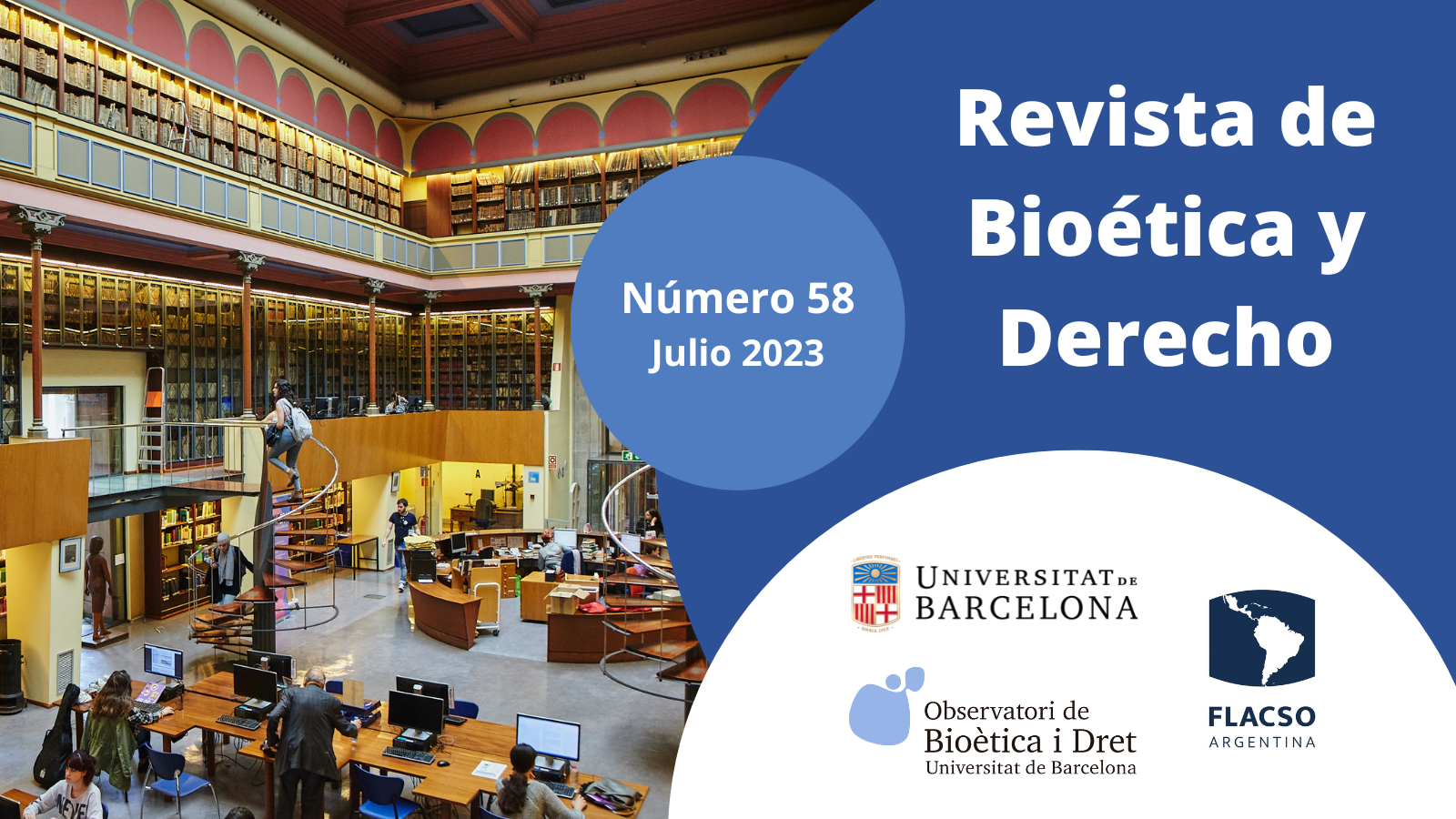Ethics committee’s situation facing health emergencies and disease outbreaks, an exploratory study in Latin America and the Caribbean
DOI:
https://doi.org/10.1344/rbd2023.58.39887Keywords:
research ethics committees, health emergencies, health research, covid-19, research ethics, human challenge studiesAbstract
An exploratory study was carried out through a survey of Ethics Committees in Spanish-speaking Latin American and Caribbean countries, to assess their situation in the face of health emergencies and consult the ethical dilemmas faced in research for COVID-19. Responses were obtained from 106 committees, belonging to 14 countries. Only 24% responded that there was an efficient and effective communication network between committees, before the pandemic. 45% responded that there were no specific committees in their regions to evaluate projects linked to health emergencies before the pandemic. The percentage of RECs that had prior procedures to evaluate research in health emergencies was only 7%, although 52% were in the process of being prepared as a result of the pandemic. The percentage of RECs that reasonably expected less than 5 days to evaluate research projects varied by design: 32% for observational studies and 12% for clinical drug or vaccine trials. The three main ethical problems identified in the studies for COVID were related to informed consent, methodological aspects, and little prior information or lack of evidence for investigational products. We believe that we must reformulate the way of thinking about the ethical problems of emergencies towards a global approach, with a preventive approach, where collaboration networks between the RECs will not become the rule.
References
DaySooner. (2021). Challenge trials for COVID-19. Obtenido de https://www.1daysooner.org/.
Global Preparedness Monitoring Board (2019). Un mundo en peligro: Informe anual sobre preparación mundial para las emergencias sanitarias. OMS, Ginebra. Obtenido de https://www.gpmb.org/docs/librariesprovider17/default-document-library/annual-reports/gpmb-2019-annualreport-es.pdf?sfvrsn=593ede2_3.
Nuffield Council on Bioethics. (2020). Research in global health emergencies: ethical issues. London. Obtenido de https://www.nuffieldbioethics.org/publications/research-in-global-health-emergencies.
Organización Mundial de la salud. (2013). Investigaciones para una cobertura sanitaria universal. Informe sobre la salud en el mundo 2013, Ginebra. Obtenido de http://apps.who.int/iris/bitstream/handle/10665/85763/9789240691223_spa.pdf;jsessionid=B1F54E42273AC14788CB3E6F285620AC?sequence=1.
Organización Panamericana de la Salud. (2016). Consulta ética sobre el zika: Orientación ética sobre cuestiones clave planteadas por el brote. Washington, DC. Obtenido de https://iris.paho.org/handle/10665.2/28485.
_____ (2020). Orientación y estrategias para agilizar la revisión y supervisión éticas de investigaciones relacionadas con COVID-19. Washington, DC. Obtenido de https://www.paho.org/es/documentos/orientacion-estrategias-para-agilizar-revision-supervision-eticas-investigaciones.
______ (2020). Orientación ética sobre cuestiones planteadas por la pandemia del nuevo coronavirus (COVID-19). Washington, DC. Obtenido de https://www.paho.org/es/documentos/orientacion-etica-sobre-cuestiones-planteadas-por-pandemia-nuevo-coronavirus-covid-19.
Saxema, A., Horby, P., Amuas, J., & al, e. (2019). Ethics preparedness: facilitating ethics review during outbreaks - recommendations from an expert panel. BMC Med Ethics, 20(29). 10.1186/s12910-019-0366-x.
World Health Organization. (2010). Research ethics in international epidemic response. Technical Consultation meeting report, Geneva. Obtenido de https://www.who.int/publications/i/item/WHO_HSE_GIP_ITP_10.1.
World Health Organization. (2016). Guidance for managing ethical issues in infectious disease outbreaks. Geneva. Obtenido de https://www.who.int/publications/i/item/9789241549837
_____ (2020). Key criteria for the ethical acceptability of COVID-19 human challenge studies. Obtenido de https://www.who.int/publications/i/item/WHO-2019-nCoV-Ethics_criteria-2020.1.
Downloads
Published
How to Cite
Issue
Section
License
Copyright (c) 2023 Marïa Laura Garau, Adriel Jonás Roitman, Adriana Durán, Carlos Nardi, Claudia Teresa Vukotich

This work is licensed under a Creative Commons Attribution-NonCommercial-NoDerivatives 4.0 International License.
 The author retains the copyright and grants Revista de Bioética y Derecho the right of first publication of the article. All articles published in Revista de Bioética y Derecho are under Creative Commons licensing Recognition – Non Commercial – NoDerivedArtwork (by-nc-nd 4.0), which allows sharing the content with third parties, provided that they acknowledge its authorship, initial publication in this journal and the terms of the license. No commercial use of the original work or generation of derivative works is permitted.
The author retains the copyright and grants Revista de Bioética y Derecho the right of first publication of the article. All articles published in Revista de Bioética y Derecho are under Creative Commons licensing Recognition – Non Commercial – NoDerivedArtwork (by-nc-nd 4.0), which allows sharing the content with third parties, provided that they acknowledge its authorship, initial publication in this journal and the terms of the license. No commercial use of the original work or generation of derivative works is permitted.







